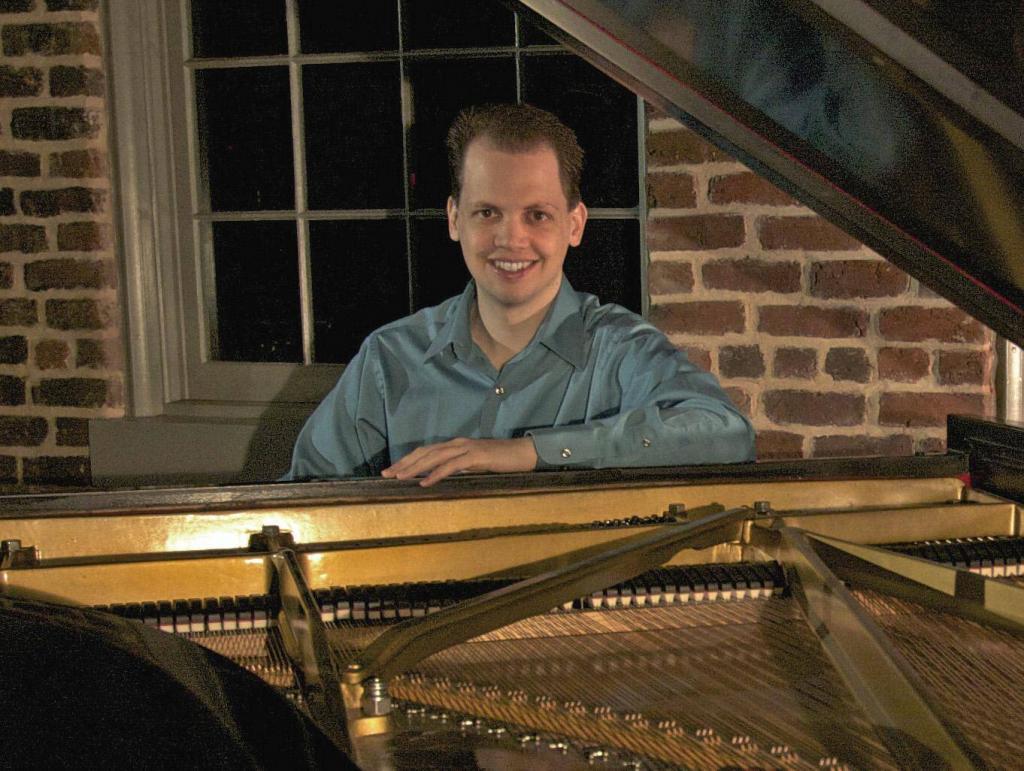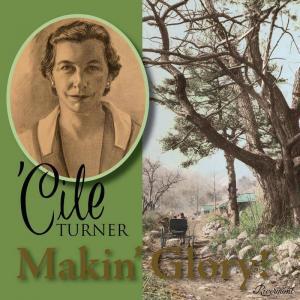As a natural sequel to last month’s column, I traveled to Pittsburgh to interview ragtime pianist and Rivermont Records owner Bryan Wright at his home.
Bill Hoffman: How did you develop your interest in early jazz?
Bryan Wright: I was fascinated by a small record player I was given at about age 2; I was so young I don’t remember receiving it. In elementary school, I developed a taste for rock-n-roll of the 50s and 60s and spent my weekly allowance at a local used record shop that sold 45s. Older friends and neighbors would give me their unwanted discs, dredged up from basements or outdoor sheds, and so I started acquiring records of all genres, including several boxes of 78s.
From those boxes, the music of Jean Goldkette, Paul Whiteman, Louis Armstrong, Waring’s Pennsylvanians, and others grew on me until one day in about 7th grade—like a light switch—the rock-n-roll records just didn’t do it for me anymore. I had become fully enamored of the earlier stuff. Meanwhile, in my classical piano lessons, I had discovered and started playing ragtime in addition to Bach and Schumann. That’s when the passion for early 20th century music took over.
When and why did you start Rivermont?
BW: Rivermont started sort of by accident in 2003 while I was a student at the College of William and Mary. By then I had acquired some 78s of Edwin J. McEnelly’s orchestra. The sprightly performances and intricate arrangements of this band attracted me and I noticed that there were no re-issues of this band, unlike others of the same era, so I decided to try producing a McEnelly reissue myself.
With the help of Vince Giordano [how Bryan came to meet Vince is a story in itself that I don’t have space to relate here.–BH] and other friends, I began researching McEnelly. In time, it became the first Rivermont CD, and it contains every record McEnelly made. I thought this might be my only such effort, but the response was so favorable and the encouragement I got spurred me to continue.
 The next CD was Syncopated Musings—my own ragtime piano solos—but the next bandleader I took on was Sam Lanin; it came out about two years later. In the meantime, Rich Conaty, the late host of the long-running The Big Broadcast on WFUV in New York, contacted me after hearing the McEnelly CD and proposed the idea of a CD to complement the music he played on his show.
The next CD was Syncopated Musings—my own ragtime piano solos—but the next bandleader I took on was Sam Lanin; it came out about two years later. In the meantime, Rich Conaty, the late host of the long-running The Big Broadcast on WFUV in New York, contacted me after hearing the McEnelly CD and proposed the idea of a CD to complement the music he played on his show.
I was flattered by this and we began a collaboration that ultimately reached 12 CDs—one coming out each year. The CDs contain songs that, for the most part, have never been re-issued since the original 78s. Unfortunately, now that Rich is gone, this series is likely to end. Aside from this, Rivermont has focused on two things: long-overlooked dance bands of the 20s and contemporary ragtime pianists and traditional jazz orchestras.
Where did the name “Rivermont” come from?
BW: There’s a historic neighborhood called Rivermont in my hometown of Lynchburg, Virginia. I used to enjoy driving along the wide tree-lined streets lined with Victorian homes listening to a cassette of Joshua Rifkin playing Joplin’s rags. So when it was time to choose a name for my fledgling effort, “Rivermont” seemed fitting. I searched to see if the name was already in use, and it was not, at that time. Later, I discovered that there had been a short-lived Rivermont label in Memphis in the late 1950s that produced five or six 45s, but that was it.
What was the most unusual album you’ve produced, and why?
BW: I suppose they’re all unusual in that no other label has produced re-issues of McEnelly, Frank Banta, or Charley Straight! The most unusual re-issue CD is probably Dainty Debutantes, which contains rare recordings of 1930s female pianists, mostly from England and Australia. All the source records were from Alex Hassan’s collection.
Alex is also responsible for another unusual album (by his trio Three for a Song) which contains obscure but wonderful songs, many of them never before recorded, from well-known composers of the 1920s and 1930s, compiled mostly by Alex and Doug Bowles. Many of these songs were commissioned for films or Broadway shows, and if they weren’t used, they languished in the vault. Alex and Doug found manuscripts for many of the songs at the Library of Congress.
What was your most difficult album?
BW: To date only one CD that I attempted never got made due to technical problems. A remarkable pianist from California, Vincent Johnson, recorded a number of novelty piano solos on a Yamaha Disklavier piano, but it was out of tune and in a bad location acoustically. He sent his files to Max Keenlyside in Canada who edited them for re-recording and sent them to me. I took the files to Yamaha Artist Services in New York, which has the finest concert grand Disklavier piano in the country.
Unfortunately, there was a file incompatibility and the results were too poor to produce. The Live from Buenos Aires CD was the most difficult in terms of carrying all the mics and related equipment from Pittsburgh to Argentina. When we finally arrived at the hall we only had 30 minutes to set everything up with no time to test anything. My colleagues were also busy preparing—Danny Coots and his drum set, and Brian Holland, who was trying to set up the video camera that produced the DVD that accompanies the CD. One of the boom mic stands fell into the piano during the concert, and we wound up not using that selection.
How do you and the artists decide on the songs to be recorded?
BW: I try to leave as much up to them as possible. On one of Martin Spitznagel’s CDs, he was relaxing during a break by playing an improvisation of “Heliotrope Bouquet” between a bunch of fast stride pieces. I thought it was so good that I asked him if I might record it. It turned out so well that we put it on the CD.
Rivermont has very well researched liner notes. Why is that important to you, and how do you arrange for the research if you don’t do it yourself?
BW: I’ve always been a history buff, which led me to go to grad school for historical musicology. [BH: Bryan last year completed his Ph.D. in historical musicology at the University of Pittsburgh. His wife, Yuko, earned hers in ethnomusicology at the same institution.] Knowing something about the music, or the musicians, has always been important to me. In many cases, I see these recordings more as a supplement to the liner notes than the other way around! I grew up with Stomp Off and Jazz Oracle CDs, whose liner notes are outstanding. From them, I learned that the music is often more enjoyable when you know something about it.
You’ve written many of the liner notes yourself, but who else has contributed?

BW: Mark Berresford in England—his notes for the Happy Six CD garnered a Grammy nomination—Randy Skretvedt, Glenn Robison, Rich Conaty, Alex Hassan, Kurt Weisbecker, sometimes the musician(s) themselves on the contemporary CDs, like Andrew Greene and Adam Swanson. They all have a real passion for digging up information on the music and musicians, and they are good writers.
Where do you see Rivermont being in, say, five or ten years?
BW: It’s so hard to say, given what’s happening in the record business. Online platforms don’t pay the kind of revenue that allow me to break even, much less make a profit. If someone streams an entire album on Spotify, they would have to do so several thousand times before I’d collect the same revenue as from the sale of one CD.
A one-time download is almost comparable to the revenue from a CD if you discount the overhead of making the CD—the physical disc, the booklet, cover art, packaging and shipping. This niche music doesn’t have the audience to generate millions of streams that pop music does. Whatever happens, Rivermont will have to remain a hobby business.
Thank you, Bryan, for your contributions to early American music, both as a performer and a scholar.
Bill Hoffman is a travel writer, an avid jazz fan and a supporter of musicians keeping traditional jazz alive in performance. He is the concert booker for the Tri-State Jazz Society in greater Philadelphia. Bill lives in Lancaster, PA. He is the author of Going Dutch: A Visitors Guide to the Pennsylvania Dutch Country, Unique and Unusual Places in the Mid-Atlantic Region, and The New York Bicycle Touring Guide. Bill lives in Lancaster, PA.






















